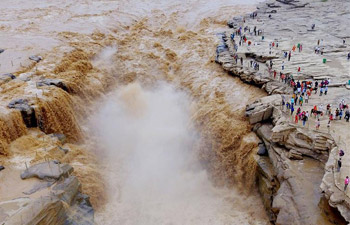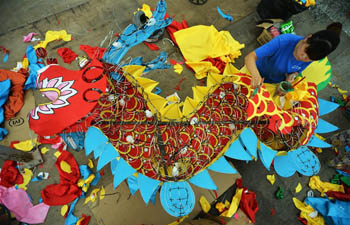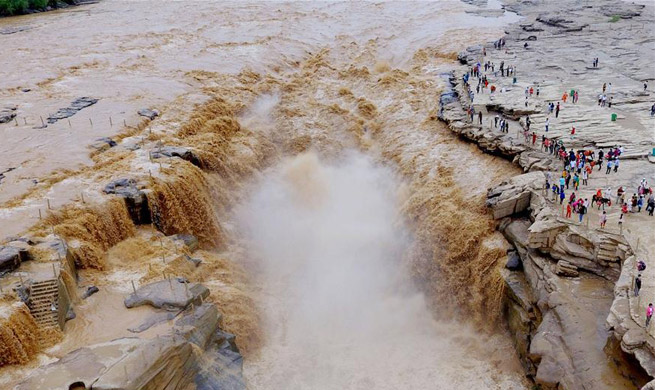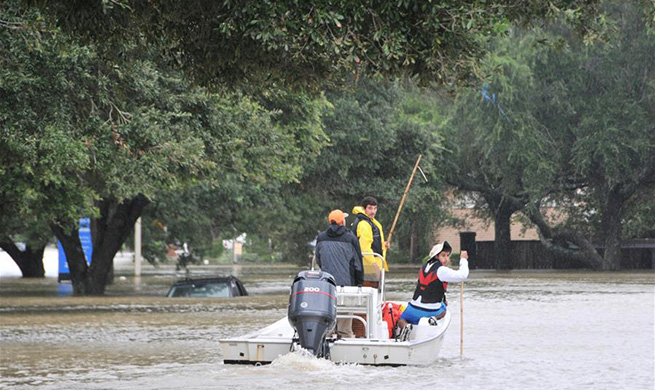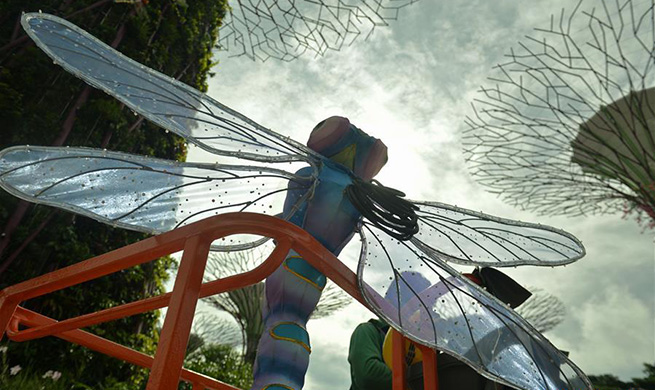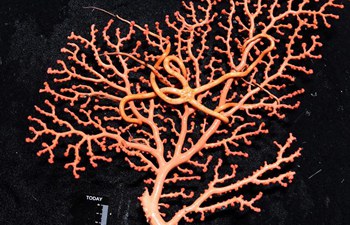by Ejidiah Wangui
NAIROBI, Aug. 30 (Xinhua) -- Whenever drought ravages Kenya, images from the northern parts of the country are those of dusty plains dotted with carcasses of livestock that succumbed to the harsh elements.
Cattle herders in these regions are the hardest hit as their only source of income is wiped out by natural calamities they have no power to control.
But amid the misery and despair, efforts to cushion these herders against the vagaries of weather have started to bear fruit.
Vera Rosauer, a communication officer at the World Bank, told Xinhua this week that the Kenya Livestock Insurance Program (KLIP), an index insurance that insures vulnerable pastoralists in the northern counties in the East African nation, has so far paid out about 5.3 million U.S dollars to over 20,000 pastoralists in the region.
"In the 2016-2017 season, due to a severe drought, KLIP had two big payouts. One in February to about 12,000 pastoral households of 2.1 million dollars and one in August to 11,500 pastoral households of 3.1 million dollars. This has helped reach about 100,000 people given the extended size of households in the North," she said.
According to the World Bank official, unlike previous interventions where responses involved mobilizing emergency relief which would arrive too late to save the animals,
KLIP provides protection starting at the beginning of a season, and if a drought strikes, payouts happen quickly to beneficiaries to allow them to buy water or food to keep the livestock alive.
"It is all about prevention, rather than cure, and speed of intervention. It is also a transparent and predictable way to provide disaster relief which leverages private sector expertise and capital," said Rosauer.
Kenya is exposed to severe droughts which strike about every three to five years. In northern Kenya, livestock represent 70 percent of households' incomes.
When drought occurs, households are at risk of losing their livestock, and their main source of food and income.
During the severe droughts between 2008 and 2011, the Kenyan economy lost heavily. The livestock sector was hit hardest.
According to Rosauer, Kenya is one of the very few countries in Sub-Saharan Africa where the index insurance program has the potential to scale up to attain commercial sustainability. Ethiopia too has a similar program.
Launched in October 2015 in Wajir and Turkana where about 5,000 pastoral households were covered, the program spread tentacles in October 2016 to cover Marsabit, Mandera, Tana River and Isiolo Counties and insured about 14,000 pastoral households.
The central government, Rosauer said, pays insurance premiums for county-selected pastoralists, and private insurance companies develop the insurance policy and pay claims when they arise.
"In 2016-2017, a pool of seven insurance companies reinsured by Swiss Re provided insurance cover. The insurance only provides cover for the equivalent of five cows, and targets the most vulnerable pastoralists," she explained.
In the program, counties are broken down into zones with similar climate and soil conditions called "unit areas of insurance."
A satellite reads every 10 days the level of pasture in these zones to produce a vegetation index, which is used as a proxy for the health of livestock.
When the vegetation index falls below a pre-determined level, all the insured beneficiaries in one zone receive a payout. The payout amount depends on the degradation of the pasture.
"Payments are made primarily by M-Pesa, and by using agents developed by some banks in the northern counties," noted Rosauer. M-Pesa is the most popular mobile payment choice in Kenya.
KLIP is implemented by the Government of Kenya through the Ministry of Agriculture and Livestock and the County governments.
The World Bank has provided technical support to the government of Kenya to design KLIP in partnership with the International Livestock Research Institute (ILRI), and Financial Sector Deepening-Kenya (FSD).




